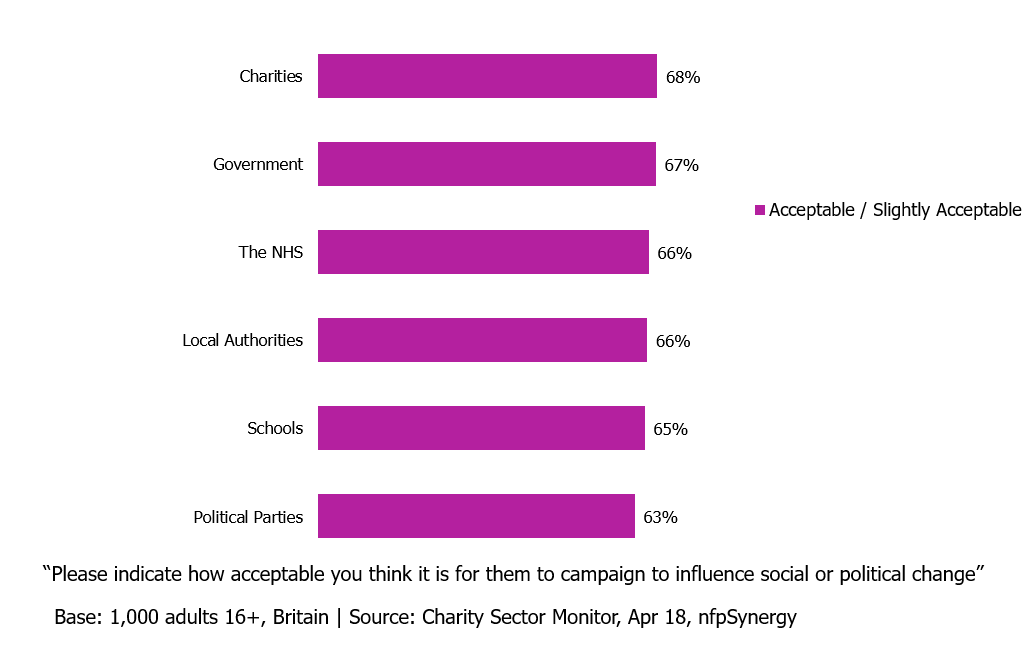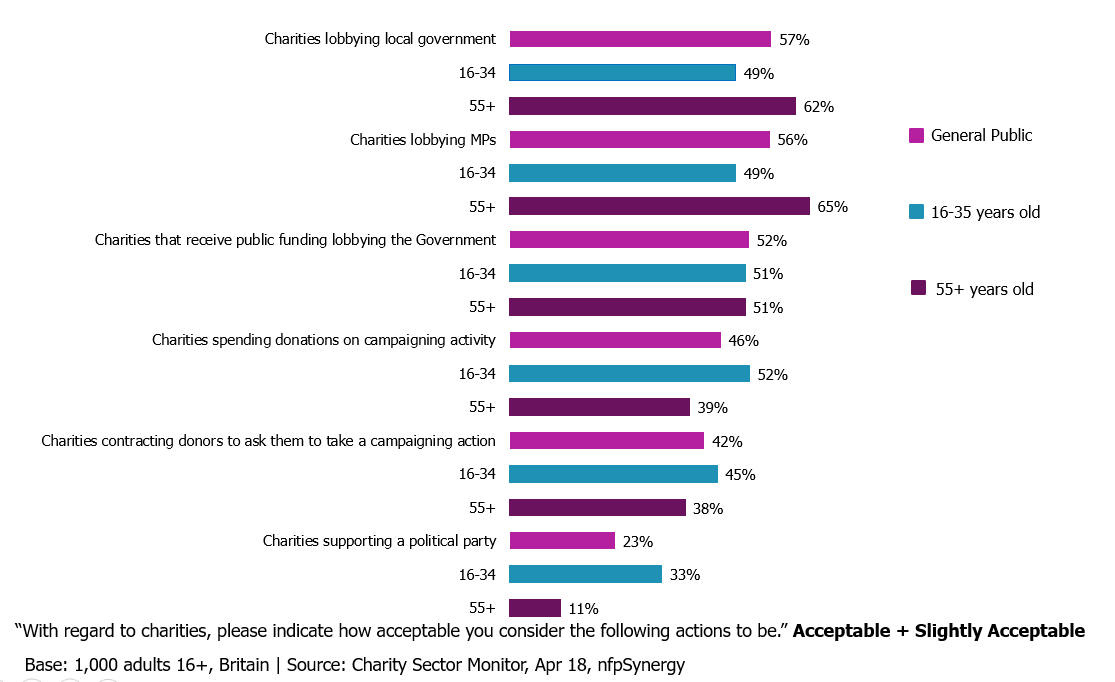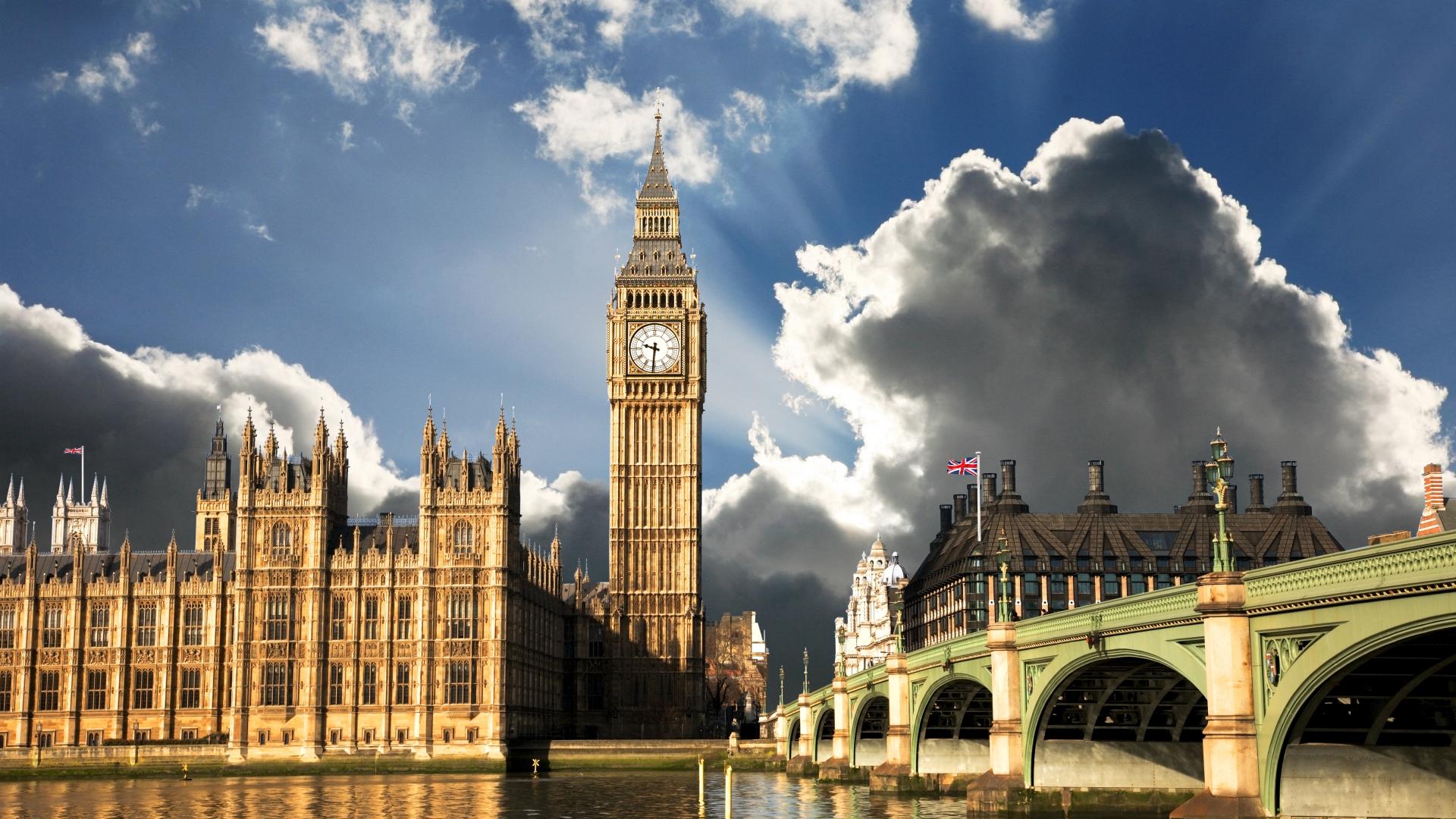Confusion and misconception around regulations and the role of charities in the political arena persist, particularly following the introduction of the Lobbying Act. Yet, the Charity Commission’s CC9 guidance clearly states charities’ legitimacy in doing advocacy, campaigning and political work, as long as the ultimate purpose is supporting their charitable goals.
In this context, what does the general public think of charities’ work in the political sphere? Do viewpoints differ across age groups?
In 2018, we asked the general public how acceptable it is for charities to campaign to influence social and political change, support political parties, lobby various organisations, as well as undertaking certain campaigning activities.
The general public largely supports charities’ campaigning, with higher support from younger people
We found that about two thirds of the general public consider it acceptable for charities to campaign to influence social or political change, with only 5% of people deeming this unacceptable. Charities, in fact, are the organisations with the largest portion of the general public stating that it is acceptable for them to undertake campaigning activities for political and social change. As shown in the graph below, this is a similar level to the Government, the NHS, local authorities, schools, and political parties.
Graph 1: Acceptability of organisations campaigning to influence social and political change

Particularly, as shown on the chart below, our research shows that almost half of the general public is happy for charities to spend donations on campaigning activity, as well as to contact donors to ask them to take a campaigning action. A quarter of the general public says they are unsure on whether it is acceptable for charities to do so. However, support for these latter activities varies across age groups, with younger age groups showing higher levels of support compared to older people.
Graph 2: Acceptability of charities’ political actions

Charities’ support of political parties is deemed unacceptable by most of the public, and especially by older people
Legally, charities are not allowed to support or fund political parties. Yet, we asked the general public whether they consider charities’ supporting political parties as acceptable. We found that only one in four people deem this as acceptable, while half of the public clearly defines that as unacceptable.
Again, our results reveal a large gap between the views of the younger and older age groups. In fact, younger people find it more acceptable than older people for charities to support a political party. This, along with the lower number of older people accepting charities spending donations on campaigning and contacting donors to ask to campaign, reflects the preference of people from older age groups towards charities that are not divisive, supporting one view over the other.
Most of the public, and particularly older people, accept charities’ lobbying
Half of the general public thinks that it is acceptable for charities to lobby MPs and local governments. Similarly, the majority of the public deems it acceptable for public-funded charities to lobby the Government.
Once more, the views of the general public about different lobbying activities differ across age groups. The over 55 age group are more likely to say that it is acceptable for charities to lobby MPs, and local governments, whereas more people in younger age groups state that they are unsure whether charities should be doing this. This is in contrast with the previously discussed results on charities campaigning activities, which see older people preferring charities not to take a specific viewpoint. However, this disparity could be explained with a number of reasons, such as younger people sharing a more negative understanding of lobbying activities.
In conclusion, the research we conducted with the general public shows that the majority of the public deems it acceptable for charities to do a range of political activities, such as campaigning to influence social and political change. In contrast, supporting political parties is largely unaccepted by the general public. In particular, we found that there are differences across age groups, with older people being less likely to say that it is acceptable for charities to spend donations on campaigning activity, contacting donors to ask them to take a campaigning action, or supporting a political party. This depicts the image of older age groups, who are the most likely to donate to charity, as less favourable towards charities being politically divisive.

